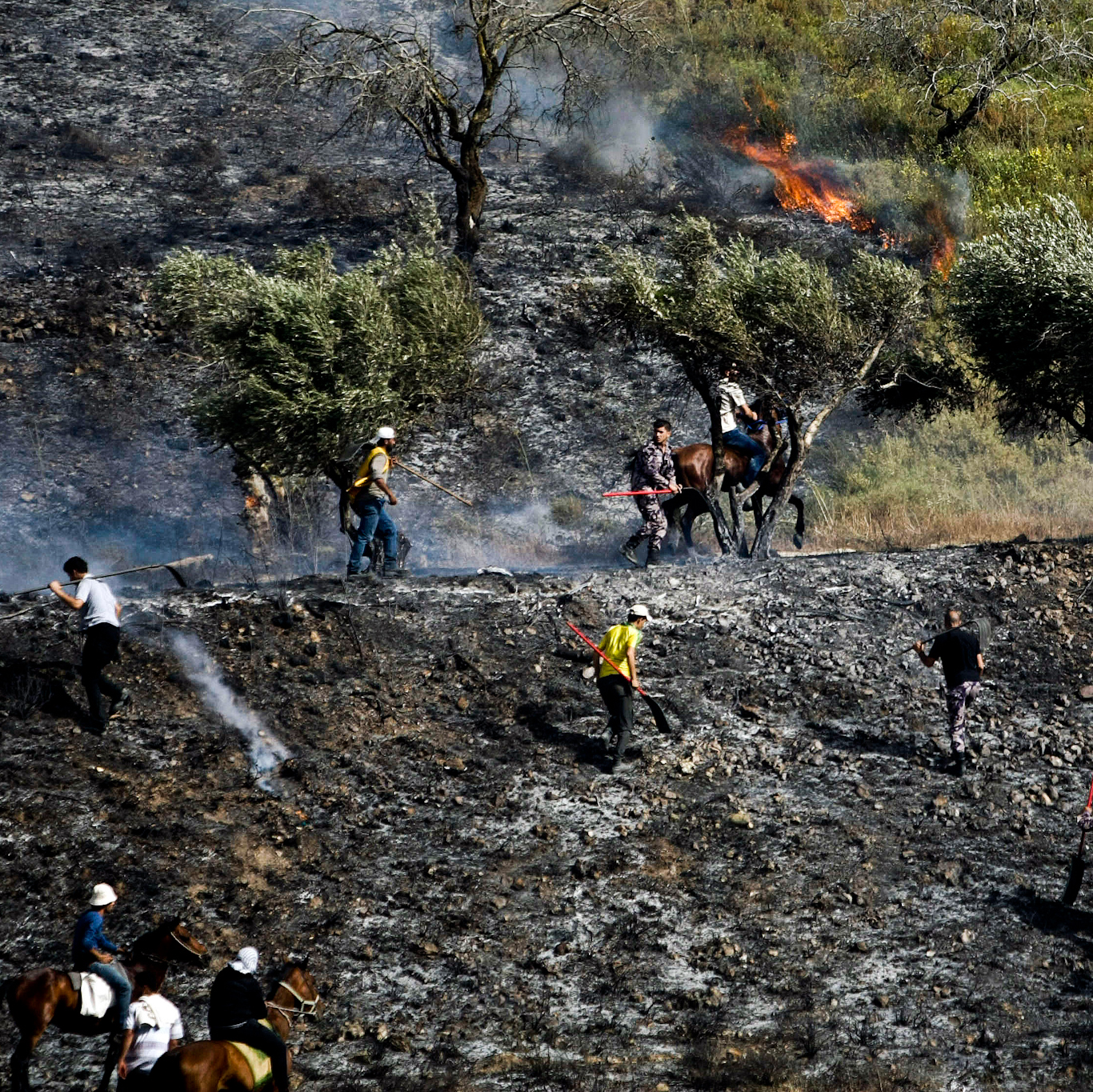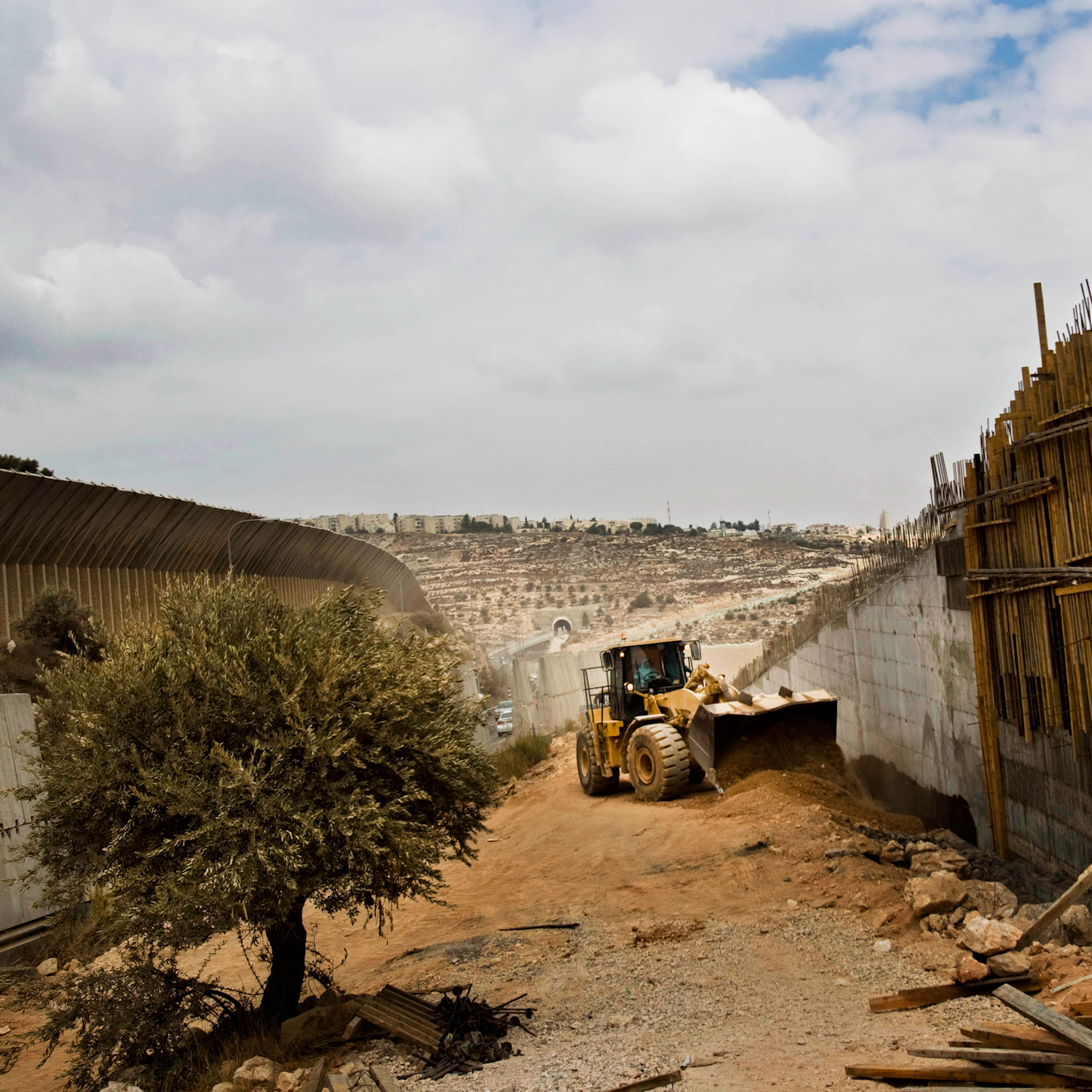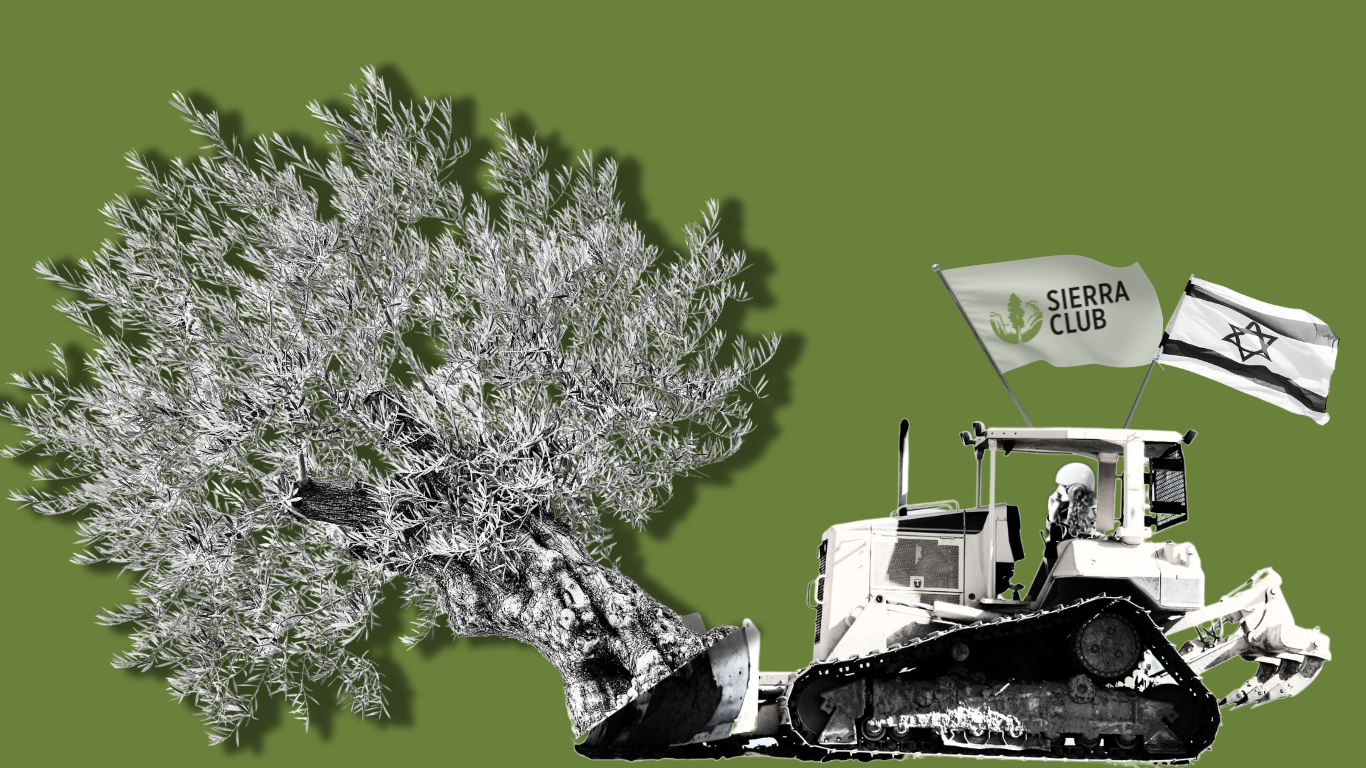In June, members of the Sierra Club unit of the Progressive Workers Union (PWU) passed a resolution pledging solidarity with the Palestinian people as the environmental organization pushes forward with its planned trips to Israel.
The workers’ resolution puts its words into action by ensuring union funds aren’t investing in Israel’s settler enterprise and contributing to the oppression of Palestinians. It also calls for establishing a Palestine solidarity committee to foster relationships with Palestinian-led organizations and help educate members on the connections between Palestine and Indigenous struggles in the U.S.
“Our members overwhelmingly voted to recognize that colonialism is part of the climate crisis here and abroad, making it clear that we have the power to put our values into practice, even when our employers don’t,” Zach Kopkin, Sierra Club employee, Progressive Workers Union member, and spokesperson for the PWU Palestine Solidarity Group, said in a statement.
📢 Today the workers of @Sierraclub passed a historic resolution pledging our solidarity with the Palestinian struggle for freedom. Read our statement below: pic.twitter.com/ijrrZ3SkkH
— Progressive Workers Union (@PWUnion1) June 27, 2023
According to a press release from the Adalah Justice Project, a Palestinian-led advocacy group based in the U.S., “This resolution is a clear message from Sierra Club workers to Sierra Club leadership that continuing ‘nature’ trips to an apartheid state––despite being asked by Palestinians to respect their struggle for justice and cancel–does not align with a true vision of environmental justice.”
Sierra Club did not respond to requests for comment.
Greenwashing apartheid
In response to pressure from pro-Palestinian groups, Sierra Club canceled its educational tours to Israel in March 2022 — only to put them back on the docket five months later.
The March 2024 two-week trip titled Natural and Historical Highlights of Israel is led by an Israeli tour guide and features similar activities to its previous Israel tours like time at a kibbutz (Jewish settler commune) and a visit to Tel Aviv.
However, in a likely attempt to appease activists, the trip also includes meeting with Palestinian environmentalists.
“Sierra Club’s planned ‘new’ trips to Palestine still depend on Zionist consultants and trip leaders but include a token nod to Palestinians,” the Adalah Justice Project said, labeling the trips as “apartheid tours.” “Israel is no environmentally friendly haven. While Israel continues bombing Gaza, pollutes water resources, burns olive trees, and prevents Palestinians from access to their land, there is no gray area.”
The Sierra Club Union formed the Palestine Solidarity Group in May 2021 amid Israel’s assault on Gaza and escalating attacks on Palestinians. The union has been vocal about its opposition to the trips and demands Sierra Club cancel them.
“The climate justice movement has finally started to grapple with the role colonialism has and continues to play in worsening the climate crisis––that includes colonialism here and abroad,” PWU Palestine Solidarity Group’s spokesperson, Kopkin, said. “For decades, Palestinians have been fighting for their freedom from Israeli oppression and theft of their land. Our members have made it clear that the Sierra Club must honor its stated values of a commitment to racial and Indigenous justice and side with the Palestinian people in their struggle against Israeli apartheid.”

Despite branding itself as environmentally friendly, Israel is anything but.
Through the Jewish National Fund (JNF), a Zionist organization exploiting environmentalism to seize more Palestinian land, Israel has razed countless indigenous trees in Palestine and replaced them with non-native plants like pine and cypress. Touting their afforestation efforts as “making the desert bloom,” JNF’s tree-planting campaign has harmed Palestine’s ecosystem and increased wildfires.
Israel’s building of the apartheid wall, separating the occupied West Bank from 1948-occupied Palestine (or modern-day Israel), has also contributed to the uprooting of more than 2 million trees. Additionally, Israeli settlers frequently torch Palestinian olive groves.
Many of Israel’s settlement industrial zones process waste in the West Bank considered too dangerous to treat under Israel’s environmental protection laws. With less stringent environmental regulations, wastewater runs into Palestinian villages — destroying wildlife and making people sick.
Israeli settlement expansion also continues to devastate Palestine’s biodiversity, like in the region of Wadi Rabah, where activists and environmental experts say plans to build a cemetery there will damage the area’s fragile habitat.
From Turtle Island to Palestine
Like Palestine, the U.S. was founded on European settler colonialism — making Native Americans’ and Palestinians’ struggles for justice inextricably intertwined. Genocide, massacres, ethnic cleansing, cultural appropriation, systematic dispossession, and forced relocation mar both of these peoples’ pasts and presents.
Similar to the environmental destruction Palestinians have faced, indigenous peoples in the U.S. have also had their lands exploited.

Standing Rock Sioux and other First Nations tribes have opposed the Dakota Access Pipeline built on their land over concerns about greenhouse gas emissions, and that potential oil spills could poison drinking water.
In November 2021, the U.S. Navy’s Red Hill underground fuel storage facility on O’ahu leaked 19,000 gallons of petroleum into the islands’ main drinking water aquifers — contaminating the water for over 90,000 people. Native Hawaiians have warned about the Navy’s fuel leaks and water pollution for years without any military response.
In Arizona, Indigenous communities are being surveilled with technology made by Israeli corporation Elbit Systems — just as that same technology surveils Palestinians and Syrian Druze. And similar to how Palestinians have been cut off from their lands because of the apartheid wall, members of the Tohono O’odham tribe say the U.S-Mexico border wall will also sever them from their lands.
In these ways, environmental justice and indigenous rights are linked, and Sierra Club workers recognize that connection, even if their administration hasn’t.
“Sierra Club leadership refused to hear their employees’ demands for racial and Indigenous justice,” Adalah Justice Project’s executive director, Sandra Tamari, said. “We proudly support the Sierra Club workers of the Progressive Workers Union, who boldly declare that true earth justice starts by centering Indigenous peoples worldwide, including the Palestinian people.”
Feature photo | Illustration by MintPress News
Jessica Buxbaum is a Jerusalem-based journalist for MintPress News covering Palestine, Israel, and Syria. Her work has been featured in Middle East Eye, The New Arab and Gulf News.


